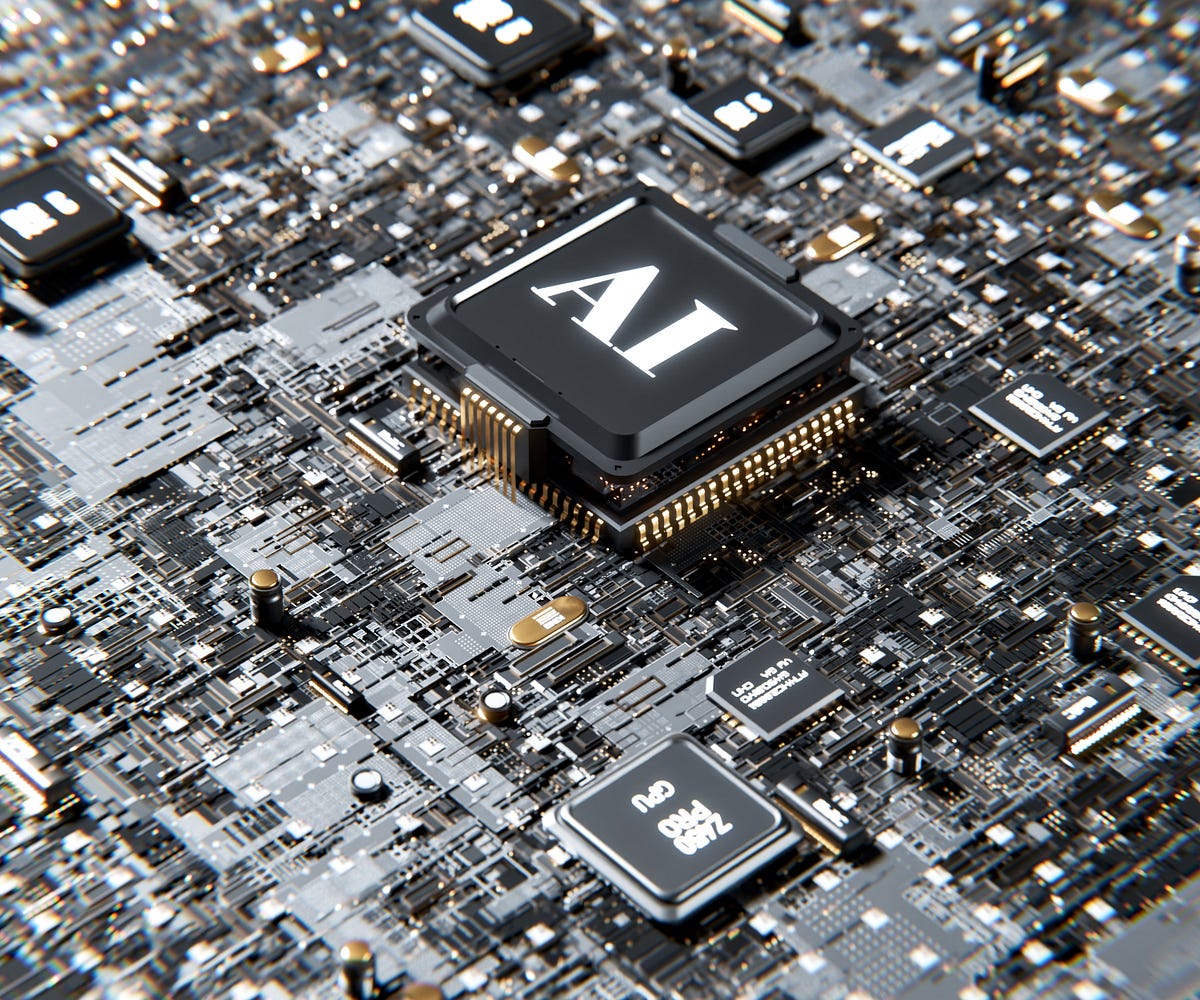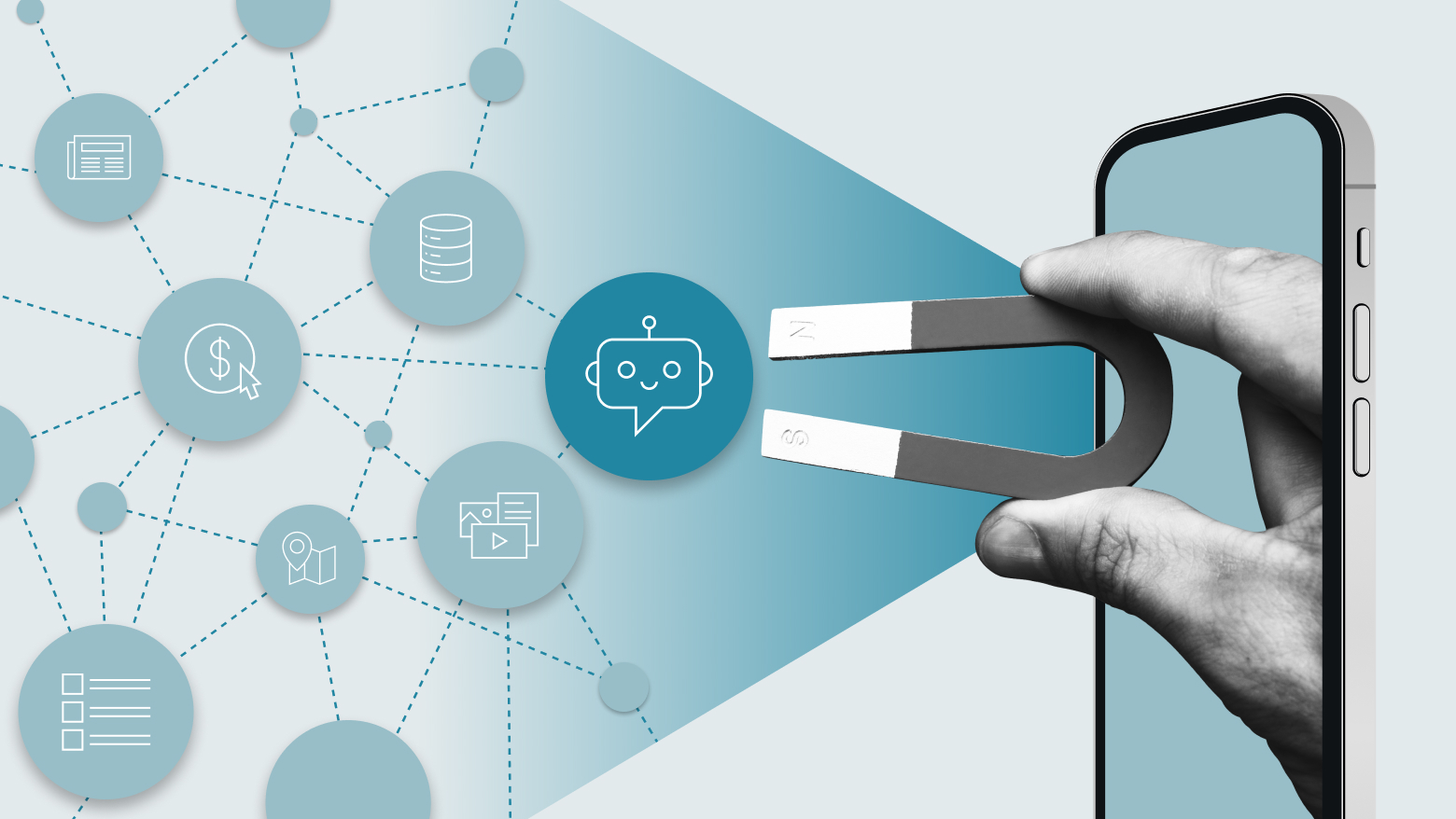
Artificial intelligence (AI) is a force to be reckoned with, and its influence on enterprises and the world economy is only increasing. Automation of activities, streamlining of procedures, and improved customer service are all made possible by AI tools and machine learning technology.
Businesses may now analyze consumer data and get previously unreachable insights into client behavior thanks to artificial intelligence (AI). Then, by using this data, businesses may enhance their offerings and provide clients with an optimal purchasing experience. Because small enterprises have so many possibilities, using AI in a commercial context has gotten easier.
Many people are curious about artificial intelligence (AI) and its potential to provide tremendous benefits when used appropriately. We'll look at some of the best approaches for businessowners to use AI to grow their companies, and we will also talk about how we leveraged AI to take our company to the next levelin this article.
AI is becoming more and more critical in business because of its revolutionary potential to improve productivity, efficiency, and decision-making. In the digital era, artificial intelligence (AI) is becoming a strategic tool for businesses looking to gain a competitive advantage.
Artificial Intelligence (AI) enables organizations to get valuable insights, see patterns, and make well-informed choices by automating mundane processes and using sophisticated data analytics. Because of its adaptive learning algorithms, businesses can remain flexible in ever-changing markets and pursue constant innovation and progress.
AI-driven solutions also improve supply chain management, customize services, and expedite client interactions. Embracing AI is not just a technological upgrade; it is a fundamental shift in how businesses operate, adapt, and thrive in an increasingly complex and data-driven landscape. Let's look at how to effectively leverage ai for your company.
Conduct Data Analysis Predictive Sales Forecasting
Artificial intelligence (AI) systems can evaluate enormous volumes of sales data quickly. They can spot patterns and correlations at a scale that human analysts would overlook, giving data-driven insights that help guide strategic choices.
Furthermore, by using predictive analytics, these systems may anticipate future sales patterns based on previous data, giving organizations the ability to manage their resources better and make plans.
According to a Salesforce research report, businesses that use data to support their sales and marketing initiatives have a 15%-25% higher chance of seeing a return on investment. Businesses may gain a competitive advantage by using AI to improve decision-making and drive efficiency in data analysis and sales forecasting.
AI instruments for projecting revenue in a predictive manner;
Tableau
Tableau is a sophisticated data visualization platform that helps organizations estimate sales and discover trends by using artificial intelligence (AI) to translate raw data into an understandable manner.
Salesforce Einstein
Einstein, the AI layer of Salesforce, helps with customer relationship management and sales forecasting by predicting sales patterns based on previous data.
Akkio
With the use of an AI-driven platform called Akkio, companies can quickly develop and implement predictive models that will power data-driven choices for a variety of applications, including fraud detection, sales forecasting, and the prediction of customer attrition.
Enhance Overall Decision Making
One of AI's primary advantages is its speed and accuracy in analyzing big datasets, which enables real-time decision-making that is smarter and more informed. AI may also free up precious resources by automating repetitive operations, freeing up firms to concentrate on more urgent and essential decision-making duties.
AI-enabled dashboards allow businesses and startups to compile and correlate collected data in one location. A thorough picture of the data and insights on performance may be obtained via AI-powered dashboards, regardless of whether you utilize pre-made, AI-enabled dashboards or create your bespoke dashboard.
Once significant data has been extracted, it becomes possible to find insights that would be too complicated or challenging to find by hand. Because of its extensive capabilities, artificial intelligence (AI) can go beyond typical market trends, enabling firms to make well-informed choices based on previously undiscovered insights.
Streamlining Workflows
To succeed in today's highly competitive world, processes must be streamlined to achieve hyper-efficiency. In a highly competitive market, companies that raise prices run the danger of losing clients. Instead, increasing internal efficiency makes businesses more competitive and helps them save expenses.
The first wave of AI-powered technologies streamlines procedures by automating repetitive operations, freeing up human resources for more complex jobs. More complicated use cases are made possible by the most recent agile Artificial Intelligence (AI) services and solutions.
Businesses today employ AI to increase accuracy, optimize resource allocation, and eliminate inefficiencies in the production and value chain.
When parameters such as temperature, humidity, pressure, or other elements are not within their designated range, IoT-enabled devices send signals to the linked system. AI-powered connected systems plan for routine maintenance and anticipate malfunctions.
By incorporating industrial robots into operations, efficiency and accuracy are increased. When AI technology was first developing, using robots in places where people worked was risky.
Automate Tedious Administrative Tasks
Administrative duties often require a significant investment of time and personnel, including data input, scheduling, and report preparation. But with the development of AI, many jobs may now be simplified and automated, increasing output.
AI can learn from data patterns using machine learning algorithms, which will eventually improve job automation's precision and effectiveness. AI-powered solutions guarantee proper and timely completion of administrative operations by providing real-time monitoring and notifications.
AI technologies for administrative work automation;
UiPath
UiPath is a well-liked Robotic Process Automation (RPA) technology that lowers administrative effort by automating repetitive processes across several systems and applications.
Zapier
This platform streamlines tasks like scheduling, email alerts, and data syncing by automating workflows across several applications.
AutomationEdge
This AI-powered RPA platform streamlines administrative duties by automating and orchestrating corporate activities. It also helps with process automation, IT automation, and AI-powered automation.
Adopt New Strategies To Fit Customer Behavior
Businesses now have more chances to change their strategic capabilities to better match consumer behavior with artificial intelligence (AI) in business intelligence. Businesses may improve the relevance and responsiveness of each touchpoint by obtaining data-driven insights into the demands and behaviors of their customers.
AI may be used to analyze unstructured consumer data, generate personalized news feeds, and curate information and suggestions. In addition, consumer segmentation, sentiment analysis, and social semantics may all be improved by using AI for real-time, optimal bidding and ad targeting.
Higher engagement and loyalty follow from being able to modify tactics to match client behavior as consumers form deeper connections with the companies they adore. Better conversion rates and more income are possible as a result of this.
Content Marketing Strategy
AI may evaluate sales data to assist in the creation of marketing plans, perhaps matching consumers with items and assisting in the development of customer-reach methods. Retailers, for example, may adjust pricing and advertising messaging in real-time by using AI to monitor selling patterns.
Effectively Manage Department Initiatives
By decreasing operating time and costs and removing human mistake, artificial intelligence (AI) in business intelligence may assist enterprises in managing department efforts more successfully. Individual departments are better able to attain their objectives and make more informed judgments when they have access to accurate data.
Large amounts of data may be processed fast and efficiently by AI-based business intelligence systems to provide insights into consumer behavior, product performance, and industry trends. Additionally, this makes decision-making and strategy-development processes more fluid and effective for firms.
Essentially, instead of waiting days or weeks for a report, individuals and department heads may swiftly evaluate data, make judgments, and take action.
AI Challenges And Considerations For Companies
There are several obstacles and factors to take into account when using AI in business, from comprehending the moral and legal ramifications to integrating and implementing new technology. Businesses must successfully navigate these obstacles if they are to fully use AI and realize its promise for innovation, efficiency, and expansion.
AI Hallucinations And Misleading Data
Although AI chatbots provide novel approaches to client interaction, companies should be mindful of the possibility of AI hallucination, in which the model produces inaccurate or illogical data.
Google's Bard, for example, falsely claimed that the James Webb Space Telescope existed, and OpenAI's ChatGPT directed attorneys to fictitious instances that were included in a federal court filing from New York. This might have negative legal ramifications for the attorneys involved.
It is essential to realize that these systems are devoid of a source of truth and that the only data they use to produce their output is training data. As a consequence, misleading information may sometimes be disseminated.
Legal And Ethical Concerns
Businesses are using AI technology more and more; therefore, it's critical to think about any possible ethical and legal issues. Machine learning-based AI systems, in particular, have the potential to inadvertently reinforce biases in their training data, which might result in discriminatory actions.
Additionally, especially in industries like healthcare and finance, the applicationof AI in decision-making processes might give rise to privacy concerns and accountability issues.
There are serious ethical issues with AI being used for dishonest purposes like deepfake production. When using AI technology, firms must proactively address these challenges by creating strong ethical rules and making sure that all applicable data protection and privacy laws are followed.
Training And Workforce Adaption
According to the BDO Digital Transformation Survey, automation will likely lead to more employment possibilities than it does to displacement, freeing up workers to concentrate on critical tasks. Large-scale use of AI technology will, however, need workforce adaptation, including steps like employee training and resolving worries about possible job loss.
To properly use these cutting-edge technologies and comprehend the ramifications of doing so, employees must be upskilled. Organizational structures may also need to be modified to make room for new AI-driven processes.
Companies run the risk of either failing to realize all of AI's potential advantages or of encountering resistance and decreased productivity in the absence of proper planning and training.
Key Performance Indicators (KPIs) For AI Implementation In Companies
AI implementation in businesses necessitates a strategic approach, and key performance indicators (KPIs) are essential for evaluating the effect and success of such projects. KPIs provide firms with measurable indicators to assess the efficacy and efficiency of their AI systems.
Accuracy is a key performance indicator (KPI) that shows how well AI models can provide accurate outputs or predictions. High accuracy guarantees the dependability of AI systems, favorably impacting decision-making procedures.
Efficiency is a key performance indicator (KPI) that measures the speed and resource use of AI systems. Efficient AI implementation is shown by shorter processing times and optimum resource usage.
Additionally, calculating return on investment (ROI) enables businesses to evaluate the monetary benefits or cost reductions associated with the use of AI. This KPI helps direct the allocation of future resources and justifies the original expenditure.
Frequently Asked Questions
How Can We Ensure A Smooth Integration Process For AI Within Our Company?
Collaborate with cross-functional teams, provide comprehensive training, and address challenges proactively.
How Did You Identify The Right AI Tools For Your Business?
Conducted thorough research, considering specific business objectives and available budget.
What Positive Impacts Can You Expect To See Post-AI Implementation?
Improved decision-making, streamlined processes, and increased overall productivity.
Final Thoughts
When it comes to their competition, businesses that use artificial intelligence will have a significant edge since they will be able to automate operations, decrease expenses, and make better-informed judgments.
As we have talked about how we leveraged AI to take our company to the next level, it is time for you to investigate how artificial intelligence (AI) might be beneficial to your operations, whether you are the owner of a startup or an established organization. Find people who have expertise in the creation and implementation of artificial intelligence to assist you in getting started.






